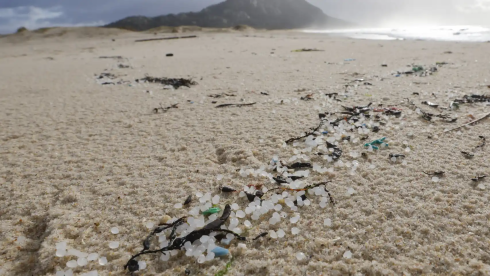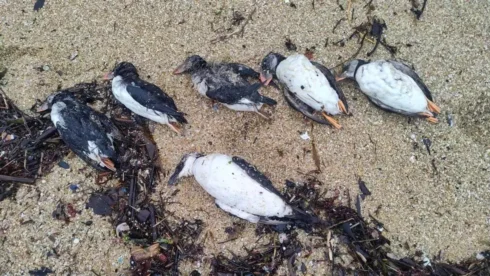THE GALICIA region has followed its neighbour Asturias on Tuesday by activating a level 2 emergency alert following the washing up of millions of plastic pellets on the coast.
The announcement was made by Galician president, Alfronso Rueda, who only said on Monday that his administration did not have the required information to work out a degree of alert.
The emergency declaration means that the region will be able to receive State aid.
More than 1,000 bags of pellets, also known as nurdles, are believed to have fallen from the Toconao, operated by Danish company Maersk, on December 8, when it was travelling in Portuguese waters.
Dozens of coastal communities have seen a tide of pellets gradually washing up ashore since December 13.
The tiny plastic balls – used to manufacture common goods such as plastic bottles – are less than 5mm wide, making cleaning up extremely difficult.
Hundreds of volunteers have been combing through sand and sieving water to find the plastic pellets.

Ecologists in Action has denounced the Maersk shipping company for a crime against the environment.
The Environmental Prosecutor’s Officer has already opened proceeding to determine whether the spill constitutes a crime while the far-left Podemos has filed a complaint against the Galicia over their inaction over the crisis.
Besides Galicia and Asturias, other areas are now on alert.
Santander City Council says some similar pellets have already arrived, and they raise the matter with the Government of Cantabria.
Meanwhile, the Basque Country has activated its alert plan on Tuesday in view of the forecast that the microplastics could soon reach the Basque coast.
Although at the moment the wind forecasts are favourable and there is no evidence that the pellets have already arrived, the Basque Country has chosen to ‘anticipate’, since the crisis ‘can cause risks to people and material goods’ and the objective is to neutralise it at sea before it hits the beaches.
The Environmental Prosecutor’s Officer has already opened proceeding to determine whether the spill constitutes a crime.
READ MORE:
Click here to read more Environment News from The Olive Press.








